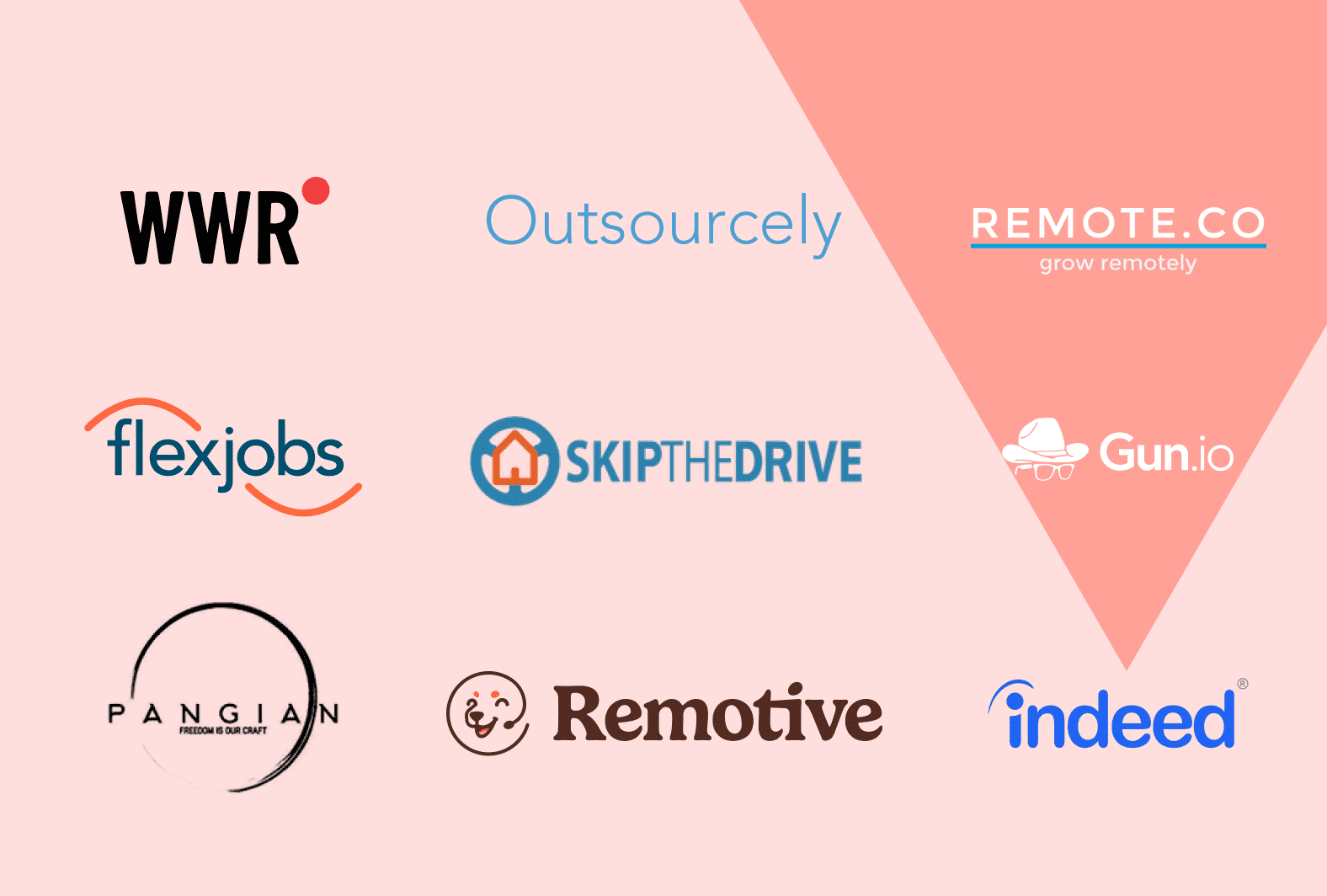How to get a Remote Job in 2023: Guide

How to Get a Remote Job in 2023: Guide
In recent years, the concept of remote work has gained significant popularity. With advancements in technology and changing work cultures, more and more companies are embracing the idea of allowing their employees to work remotely. In this guide, we will explore the steps you can take to land a remote job in 2023.
1. Identify Your Skills and Passion
Before you start looking for a remote job, it is essential to identify your skills and passion. Remote work demands a certain level of self-discipline and motivation, so it's crucial to find a role that you are passionate about. Consider the skills you have acquired throughout your career and determine how they can be applied to remote work opportunities. Reflect on your strengths, weaknesses, and areas of expertise to better understand the type of remote job that would suit you.
Remote work offers a wide range of possibilities, from technical roles like software development and data analysis to creative roles like graphic design and content writing. Think about your interests and what you enjoy doing. Are you a people person who thrives in customer service roles? Or do you prefer working independently on creative projects? Understanding your skills and passion will help you narrow down your job search and find remote positions that align with your interests.
2. Conduct Research on Remote-Friendly Industries
Certain industries are more open to remote work than others. Conduct thorough research to identify industries that are known for offering remote job opportunities. Technology, marketing, writing, design, and customer service are some of the sectors where remote work is widely accepted. Explore job boards, online communities, and forums related to your field of interest to gather insights about remote-friendly industries. Look for companies that have a track record of supporting remote work or have explicitly advertised remote positions in the past.
Researching remote-friendly industries will give you a better understanding of the job market and the types of roles available. It will also help you identify the skills and qualifications that are in demand in those industries. For example, if you are interested in remote software development, you may need to focus on specific programming languages or technologies that are commonly used in remote development teams. Understanding the requirements of remote-friendly industries will allow you to tailor your skills and experiences accordingly.
3. Update Your Resume and Online Presence
Once you have identified your skills and the industry you want to target, it's time to update your resume and online presence. Tailor your resume to highlight remote work skills such as communication, time management, and self-motivation. Provide specific examples of remote work experiences, projects, or achievements that demonstrate your ability to work effectively in a remote setting. Create or update your professional profiles on platforms like LinkedIn, showcasing your remote work experience and skills. Use keywords related to remote work in your profiles and job titles to increase your visibility to potential employers.
When updating your resume, focus on highlighting your remote work experience and skills. If you have previous remote work experience, emphasize your ability to work independently, manage your time effectively, and communicate remotely with colleagues or clients. If you don't have direct remote work experience, highlight transferable skills that are relevant to remote work, such as self-motivation, adaptability, and problem-solving abilities. Showcase any remote-specific tools or technologies you are familiar with, such as project management software, virtual communication platforms, or collaboration tools.
In addition to your resume, make sure your online presence reflects your remote work aspirations. Update your LinkedIn profile to include remote work-related keywords and descriptions. Share articles or insights related to remote work on your social media accounts to demonstrate your interest and knowledge in the field. Consider creating a personal website or portfolio that showcases your remote work experience, projects, and skills. Having a strong online presence will make it easier for potential employers to find you and understand your remote work capabilities.
4. Network with Remote Professionals
Networking plays a crucial role in finding remote job opportunities. Connect with professionals who are already working remotely or have experience in remote work. Attend industry conferences, join relevant online communities, and engage in conversations with remote professionals. Networking can provide you with valuable insights, job leads, and potential referrals. Participate in remote work-related events, webinars, or meetups to expand your network and gain industry knowledge. Engage in discussions on social media platforms or join remote work-focused Slack communities to connect with like-minded professionals.
Building a strong professional network is essential for finding remote job opportunities. Reach out to remote professionals in your field of interest and ask for informational interviews or advice. Attend virtual conferences or webinars focused on remote work to connect with industry experts and potential employers. Join online communities or forums dedicated to remote work to engage in discussions and learn from the experiences of others. Networking can provide you with insider information about job openings, remote work best practices, and tips for a successful remote career.
5. Leverage Remote Job Boards and Websites
Numerous remote job boards and websites aggregate remote job opportunities from various industries. Platforms like Remote.co, FlexJobs, We Work Remotely, and Remote OK are popular choices for finding remote roles. Create profiles on these websites, set up job alerts, and regularly check for job openings that match your skills and preferences. Tailor your job search using filters such as job type, industry, and location to find remote positions that align with your interests. Additionally, explore specialized job boards or websites that cater specifically to your field or niche.
Remote job boards and websites are valuable resources for finding remote job opportunities. They allow you to access a wide range of remote positions from different industries and locations. When using remote job boards, make sure to customize your profile and set up job alerts based on your preferences. Take the time to browse through job listings and read the job descriptions carefully. Pay attention to the required skills and qualifications, as well as any specific remote work requirements or preferences mentioned by the employers. Tailor your application materials accordingly to increase your chances of success.
6. Showcase Your Remote Work Skills in the Application Process
When applying for remote job roles, it is essential to showcase your remote work skills throughout the application process. Emphasize your ability to work independently, meet deadlines, and effectively communicate in a remote setting. Highlight your experience with remote collaboration tools such as project management software, communication platforms, or video conferencing tools. Include concrete examples of successful remote work experiences and highlight any relevant remote certifications or training you have completed. Provide references or testimonials from previous remote work experiences to demonstrate your competence and reliability.
In your application materials, such as your cover letter and resume, focus on demonstrating your remote work skills and experiences. Highlight instances where you have successfully managed remote projects, collaborated with virtual teams, or handled communication challenges in a remote setting. Showcase your ability to work autonomously, stay motivated, and meet deadlines without direct supervision. If you have experience working across different time zones or with remote colleagues from diverse backgrounds, mention that as well. Employers are looking for candidates who can thrive in a remote work environment, so make sure to highlight your remote work capabilities.
7. Prepare for Remote Job Interviews
Remote job interviews may have a different format compared to in-person interviews. Be prepared for video interviews and practice beforehand to ensure you present yourself professionally. Familiarize yourself with popular video conferencing tools like Zoom or Skype and test your audio and video settings before the interview. Dress professionally, pay attention to your background, and minimize distractions in your environment. Prepare answers to common remote work-related interview questions, such as how you manage your time, stay motivated, or handle communication challenges in a remote setting. Showcase your adaptability, problem-solving skills, and ability to work autonomously during the interview process.
Remote job interviews often involve video conferencing to simulate face-to-face interactions. It's important to be comfortable with video interviews and present yourself in a professional manner. Practice speaking clearly and confidently, and maintain eye contact with the interviewer by looking at the camera. Make sure your internet connection is stable, and your audio and video settings are working properly. Dress appropriately for the interview, just as you would for an in-person interview. Pay attention to your surroundings and choose a quiet, well-lit area for the interview. Minimize distractions and interruptions to ensure a smooth and professional interview experience.
8. Develop Remote Work Skills
To increase your chances of securing a remote job, focus on developing and enhancing your remote work skills. Remote work demands excellent communication skills, self-discipline, time management, and the ability to work independently. Seek out online courses, webinars, or workshops that can help you improve these skills and gain additional qualifications. Look for remote-specific training programs or certifications that can demonstrate your commitment to remote work. Develop your digital literacy by familiarizing yourself with remote collaboration tools, project management software, and virtual communication platforms commonly used in remote work environments.
Remote work requires a unique set of skills that go beyond technical expertise. Effective communication, both written and verbal, is crucial in a remote work setting where face-to-face interactions may be limited. Time management and self-discipline are essential for staying organized and meeting deadlines without direct supervision. The ability to work independently and solve problems autonomously is highly valued in remote work environments. Look for online courses, webinars, or workshops that focus on these skills and provide practical tips for remote work success. Consider obtaining remote work certifications or badges to showcase your commitment to remote work and your proficiency in remote work practices.
9. Highlight Soft Skills in your Cover Letter and Resume
Soft skills are highly valued by remote employers. Include a dedicated section in your resume and cover letter to highlight these skills. Soft skills such as adaptability, problem-solving, collaboration, and interpersonal skills are crucial in a remote work environment. Share specific examples of how you have utilized these skills in your previous roles to demonstrate your ability to thrive remotely. Highlight instances where you have successfully resolved conflicts, managed remote teams, or contributed to virtual collaboration efforts. Soft skills are often the differentiating factor for remote employers, as they contribute to effective remote communication and team dynamics.
In addition to technical skills, remote employers also value soft skills that contribute to a positive remote work environment. Adaptability is particularly important in remote work, as it often involves working with colleagues from different time zones or cultural backgrounds. Problem-solving skills are crucial for addressing challenges that may arise in a remote setting, such as technical issues or communication barriers. Collaboration skills are essential for working effectively with remote teams, often across different locations. Interpersonal skills, such as empathy and active listening, are important for building strong relationships with remote colleagues. Make sure to highlight these soft skills in your cover letter and resume, providing specific examples of how you have demonstrated them in your previous roles.
10. Be Flexible and Patient
Finding a remote job can take time and patience. Be open to exploring various roles and industries that align with your skills and interests. Consider starting with freelance or part-time remote positions to gain experience and expand your network. Be flexible in terms of job requirements, compensation, and working hours, especially when starting your remote career. Remote job opportunities may vary in terms of work arrangements, such as fully remote, partially remote, or remote-friendly companies that offer occasional work-from-home options. Be willing to adapt to different work environments and embrace the flexibility that remote work offers.
Finding the right remote job can sometimes be a journey that requires flexibility and perseverance. Remote job opportunities may not always align perfectly with your expectations or preferences. Be open to exploring different roles or industries that offer remote work options, even if they are not in your immediate field of interest. Starting with freelance or part-time remote positions can provide valuable experience and help you build a remote work portfolio. Keep in mind that remote work arrangements can vary, so be open to different work schedules or time zones. Patience is key when searching for a remote job, as it may take time to find the right opportunity that matches your skills, interests, and work preferences.
11. Demonstrate Remote Work Skills in a Side Project
If you are struggling to find a remote job, consider working on a side project that demonstrates your remote work skills. This could be creating a blog, launching an online business, contributing to open-source projects, or volunteering for remote initiatives. Showcasing your remote work abilities through a side project can provide evidence of your skills and dedication to prospective employers. It also allows you to gain practical experience, build a portfolio, and expand your network within your chosen field.
Side projects are a great way to showcase your remote work skills and demonstrate your commitment to continuous learning and growth. Consider starting a blog or website where you can share your expertise or insights related to your field of interest. Launching an online business or e-commerce store can demonstrate your entrepreneurial spirit and ability to work independently. Contributing to open-source projects or volunteering for remote initiatives can showcase your collaboration skills and community involvement. Side projects not only provide valuable experience but also serve as tangible evidence of your remote work capabilities when applying for remote job roles.
12. Stay Updated with Remote Work Trends and Technologies
The world of remote work is continually evolving, with new trends and technologies emerging. Stay updated with the latest remote work practices, tools, and trends by following remote work influencers, subscribing to newsletters and podcasts, and staying active in remote work communities. Join professional groups on social media platforms, participate in webinars or virtual conferences, and engage in discussions around remote work topics. Demonstrating your knowledge of remote work trends can make you a more attractive candidate to potential employers and showcase your commitment to staying current in the remote work landscape.
Remote work is constantly evolving, driven by advancements in technology and changes in work culture. It's important to stay up to date with the latest remote work trends and technologies to remain competitive in the job market. Follow remote work influencers, thought leaders, and industry experts on social media platforms to stay informed about new developments and best practices. Subscribe to newsletters or podcasts that focus on remote work topics to receive regular updates and insights. Engage in discussions and share your thoughts in remote work communities or forums to contribute to the conversation and expand your knowledge. Demonstrating your understanding of remote work trends and technologies can make you stand out as a candidate who is proactive and forward-thinking.
Conclusion
Securing a remote job in 2023 requires a combination of preparation, perseverance, and adaptability. Identify your skills and passion, research remote-friendly industries, update your resume, and build a robust online presence. Network with remote professionals, explore remote job boards, and highlight your remote work skills throughout the application process. By following these steps and staying proactive in your remote job search, you increase your chances of landing a rewarding remote job in 2023. Remember to stay flexible, patient, and continuously update your remote work skills to thrive in the evolving remote work landscape.


